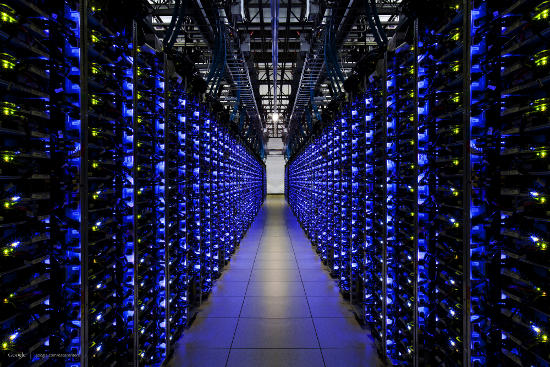A Pepper Grinder Post
Living a One-Story Life
In the post before last (Two Story World), I talked about the central thesis in Nancy Pearcey’s book, Total Truth. She makes the point that religion, in much of the modern world, has been relegated to the “second story” of thought—things which may be “true for you,” but cannot be proven or considered universally True. Science, on the other hand, starting from the unprovable hypothesis that the only theories that can be taken seriously are those which assume that all things happen solely through natural causes and chance, has taken over the first story—things which can be considered universally True and which can be used to accomplish real and practical things.
When I read Pearcey’s book, I was convinced that her analysis was accurate. One of my biggest questions, though, was what I should do in MY life. Since I believe that the two-story separation of spiritual truth from scientific truth is false, how can I live my life so that God’s Absolute Truth infuses and directs every aspect of what I do?
One of Pearcey’s points is that when we act as though some occupations or vocations are secular while others are religious, we are going right along with the two-story view of reality. She claims that thinking in a two-story way leads us to think that people with secular jobs are not doing God’s work in the way that those with religious vocations are.
 Take me, for example. I do I.T. work for a secular company that raises, kills, and sells chickens. In the two-story view, there is nothing special about that. I should go to work and be honest and a good worker, for the purpose of being a good witness to my fellow-workers. I should give generously to my local church and be involved in as many churchy activities as I can be. If I do all that, it still won’t be as good as if I were a pastor or a missionary, but it will be pretty good. In terms of how I decide to install a piece of software or write a script, religion has pretty much nothing to tell me. In the traditional view, doing the nitty-gritty of my job falls squarely into the first story.
Take me, for example. I do I.T. work for a secular company that raises, kills, and sells chickens. In the two-story view, there is nothing special about that. I should go to work and be honest and a good worker, for the purpose of being a good witness to my fellow-workers. I should give generously to my local church and be involved in as many churchy activities as I can be. If I do all that, it still won’t be as good as if I were a pastor or a missionary, but it will be pretty good. In terms of how I decide to install a piece of software or write a script, religion has pretty much nothing to tell me. In the traditional view, doing the nitty-gritty of my job falls squarely into the first story.
In Pearcey’s view, on the other hand, what my company does—providing food—is a central part of the role given to man by God. Therefore it is, in and of itself, an honorable and Christian thing to do. She would certainly agree that I should do my work well and honestly, but she would say that I should do this not so that I will be a good witness (though this certainly could be a good side-effect), but because doing this is part of God’s calling for me. God cares as much about me writing a computer program that will run reliably as he does about a pastor preaching a good sermon. He cares about what I do at work, not as a means to some religious end, but because the work is, in and of itself, an act of service and obedience to God.
Although I work for a chicken company, as an I.T. guy, I just about never even see a chicken. It is hard for me to feel that I am working to provide food for people. My big question in relation to my job as I read Pearcey was, “How should a belief that God created and redeemed the world affect the way I do my job?” How should I think differently about work than a conscientious atheist? As I pondered this, it struck me that when God created the world, he brought order out of chaos. I think a great deal of what is done in I.T. is doing precisely that. We work with and develop software that plows through mounds of seemingly meaningless data and extracts useful information from it. We use computer programs to try to keep things from going wrong and to correct them when they do. We control and order things so they will work better.
 If you are operating from a naturalistic, evolutionary viewpoint, you might be trying hard to bring order out of chaos, but you are actually operating contrary to your worldview. Someone from that viewpoint believes that all the vast complexity of life and of the universe arose from chance occurrences and natural processes. When chance has produced something far superior to the best that people, working very hard for millennia, have been able to come up with, why should you intervene? The I.T. worker is an intelligent designer. He KNOWS he can bring about something that would never happen if he just left the chaotic data and computer processes to themselves. Just ask an I.T. person what would happen if all the I.T. staff were fired and the data center just left to run on its own. Then ask him (or her) what would happen if this were done at a million data centers over billions of years. Would he believe that any of those abandoned data centers would evolve into more organized, better working systems without outside intervention? I think not. Thus, the secular I.T. person is acting in a way that is at odds with his view of the world and its origins.
If you are operating from a naturalistic, evolutionary viewpoint, you might be trying hard to bring order out of chaos, but you are actually operating contrary to your worldview. Someone from that viewpoint believes that all the vast complexity of life and of the universe arose from chance occurrences and natural processes. When chance has produced something far superior to the best that people, working very hard for millennia, have been able to come up with, why should you intervene? The I.T. worker is an intelligent designer. He KNOWS he can bring about something that would never happen if he just left the chaotic data and computer processes to themselves. Just ask an I.T. person what would happen if all the I.T. staff were fired and the data center just left to run on its own. Then ask him (or her) what would happen if this were done at a million data centers over billions of years. Would he believe that any of those abandoned data centers would evolve into more organized, better working systems without outside intervention? I think not. Thus, the secular I.T. person is acting in a way that is at odds with his view of the world and its origins.
 On the other hand, when I go to work with a belief that a personal God created the world out of nothing and then worked to fix it after man’s disobedience broke it, everything I do at work is completely in line with my worldview. God brought order out of disorder. Me too. God works to fix broken things. Same here. This means that God and his Truth are incredibly relevant to my job. I am following in his footsteps, and the more I learn about how God does things, the better I will know how to do my job!
On the other hand, when I go to work with a belief that a personal God created the world out of nothing and then worked to fix it after man’s disobedience broke it, everything I do at work is completely in line with my worldview. God brought order out of disorder. Me too. God works to fix broken things. Same here. This means that God and his Truth are incredibly relevant to my job. I am following in his footsteps, and the more I learn about how God does things, the better I will know how to do my job!
I have applied this idea to my profession, but I believe it applies to all other jobs that do not involve violating the commands of the Bible. is, in and of itself, an honorable and Christian thing to do. She would certainly agree that I should do my work well and honestly, but she would say that I should do this not so that Are you an artist? Look at the world around you. God is the original creator of abundant beauty. Are you in a service profession? The son of man came to serve.
I believe that if Christians applied the knowledge of God we have in the Bible to how they did their jobs and callings, we would see amazing things. By seeing God as separate from the mundane aspects of life, we cut ourselves off from a source of incredible knowledge and power. Christians should be (and often have been) the best artists, the best mothers, the best scientists, and even the best I.T. people. Don’t lock God into one part of your life. Let him have the run of the whole house, and see what he does!
- Pepper
Posted 2014-03-30
*Photo Credits: rooster by Mei Teng Wong, abstract (white on red) by Marja Flick-Buijs
